Analysis: The Quetta carnage was forewarned
Over past decade and a half, Pakistan has failed to implement pre-emptive counter-terror, counter-crime mechanism
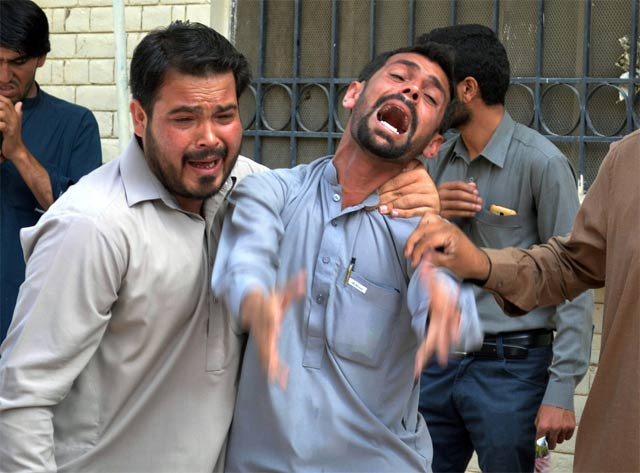
Bystanders react at the site after a bomb explosion at Civil Hospital premises in Quetta on August 8, 2016. PHOTO: AFP
The core question posed before the people of Pakistan is whether Monday’s bloodbath was a product of sheer terrorism or part of the ongoing India-Afghan proxy war. Both can’t be addressed with the same tactics and strategy.
The federal and provincial governments suspect Afghanistan-based Indian RAW agents, who have allegedly toyed with a Taliban splinter group. For the militia, neither the assassinated lawyer nor the crowd in the hospital were of any consequence. Over the course of Zarb-e-Azb, the Taliban have preferred high-value targets instead of random people. Was it an act of desperation? Well, if it was then why choose lawyers in Quetta. India, on the other hand, has exploited various Afghan and Taliban extremists to attack the General Headquarters in Rawalpindi, Mehran Naval Base in Karachi and Pakistan Aeronautical Complex in Kamra. It’s plausible that the dastardly act was meant to expose security flaws in Balochistan to weaken Chinese confidence in the economic corridor in Pakistan.
Over the past decade and a half, Pakistan has failed to evolve and implement a pre-emptive counter-terrorism and counter-crime mechanism. The military has since conducted half a dozen operations as civilian institutions have proven to be too politicised and incompetent to deliver.
Police force throughout the country has remained ill-trained and ill-equipped, not to mention the issues that have dominated the recruitment process. The same has been the case with provincial intelligence services. With no exception, every provincial government has used cops as well as sleuths for profiling rivals and providing security and protocol. Meanwhile, over 60,000 have lost their lives and countless underwent traumatic amputations and sustained mental scars. While K-P saw two military operations in Swat, security of Karachi remains in the control of paramilitary forces. Rangers’ performance has not only been far from satisfactory, partly due to political interference, but has also undermined the need and role of an efficient police department.
Over the past 15 years, the emphasis has been on deterrent security measures, such as checkpoints and night-and-day patrols. Despite their failings, the tactics remain the same. Wherever security cameras were installed, either there was no monitoring or the devices were never maintained regularly, only to be found out-of-order after a terrorist attack.
The checkpoints have been mushrooming but without proper monitoring of those manning them. Unlike the standard operating procedures adopted for a military patrol or security duty, these cops at the checkpoints have to be on duty for over 12 hours without any provision of water, food or tea by the police department. While the majority is not even equipped with wireless radio communication devices, asking for surveillance cameras at each checkpoint in Islamabad and Rawalpindi, and other major cities seems too much.
Moreover, a great number of public and commercial sector offices are given protection by private security agencies. Licensed to retired mid-ranking military officers, the companies pay meagre salaries to mostly former soldiers, equipping them with a weapon they have never really used in a drill. The last time these guards, who have mostly become a symbol of ‘fake’ prestige, were trained was a couple of decades ago.
There has been no serious effort at the national and provincial level to rely on dogs for security as the animals can trace a smell up to 24 hours after a crime is committed. World over dogs are trained to aide in wars, detect drugs and fight crimes. The country’s sole Army Dog Center in Rawalpindi is mandated to meet the needs of the military. Some retired military men started the business of training dogs and renting them for security, but on a very small scale. Had there been healthy, well-trained, well-fed dogs with a handler outside the court premises or hospital in Quetta, the terrorists may never have been so lucky.
Even when a smart but costly solution such as Islamabad Safe City is implemented, some of the key shortcomings remain. While the high-resolution cameras keep vigil over the city, there is no quick reaction force in place to thwart a detected threat.
The interior ministry and the provincial home ministries not only need to take true ownership of their responsibilities but should also be ready to be held accountable. While the security wizards need to go back to the drawing board and meet the basic needs of policing, there is a need to roll heads after every fiasco leaving political favouritism aside.
Naveed Ahmad is a Pakistani investigative journalist and academic with extensive reporting experience in the Middle East and North Africa. He is based in Doha and Istanbul. He tweets @naveed360



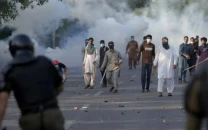
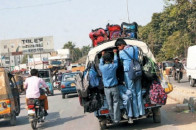
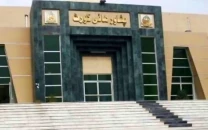
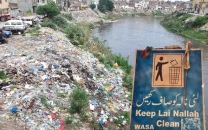












COMMENTS
Comments are moderated and generally will be posted if they are on-topic and not abusive.
For more information, please see our Comments FAQ